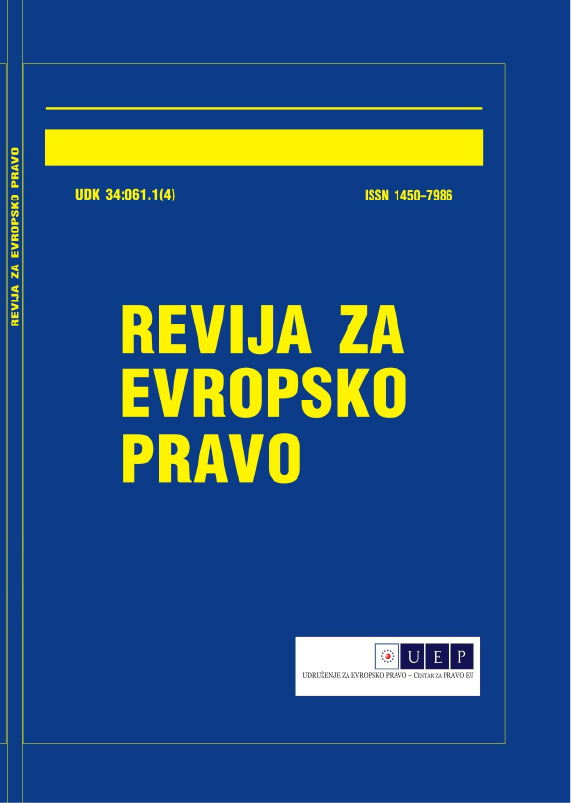Evropski savet u institucionalnom okviru Evropske unije nakon Lisabonskog ugovora
The European Council in the institutional framework of the European Union after the Lisbon Treaty
Author(s): Zorančo VasilkovSubject(s): EU-Legislation
Published by: Удружење за европско право - Центар за право Европске уније
Keywords: European Council; institutions of the European Union; institutional framework; competences; political guidelines
Summary/Abstract: The European Council is one of the institutions of the European Union which, due to its composition and decision-making methods, has been under intense public scrutiny since the entry into force of the Treaty of Lisbon. As a higher political body of the Union and an institution without legislative competences, since its inception until today, it has evolved into a place where the member states at the highest level agree, negotiate and more often exceed the legal framework in which they should act. Established in the mid-70s of the last century as an institution for political guidance of the future development of the Community, and later of the Union through strategic guidelines and conclusions of the presidents of states and governments, the European Council, during the 15 years of implementation of the Treaty of Lisbon, has grown into an executive body par excellence. The political weight of decisions made by the European Council, especially in crisis situations, affects the institutional balance, that is, an imbalance that is increasingly leaning towards the decisive role of the politics and interests of member states at the expense of supranational institutions and respect for the rights of the European Union.
Journal: Revija za evropsko pravo
- Issue Year: 26/2024
- Issue No: 1
- Page Range: 41-56
- Page Count: 16
- Language: Serbian

